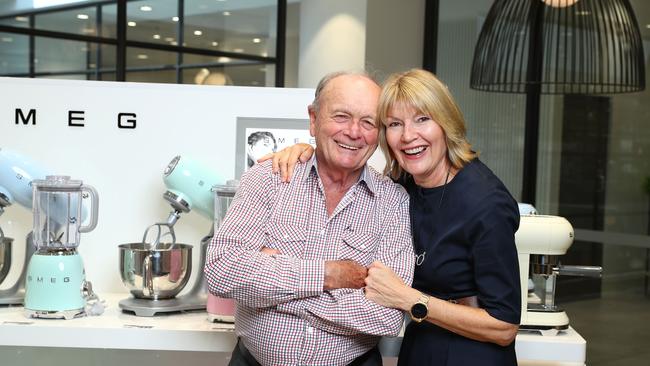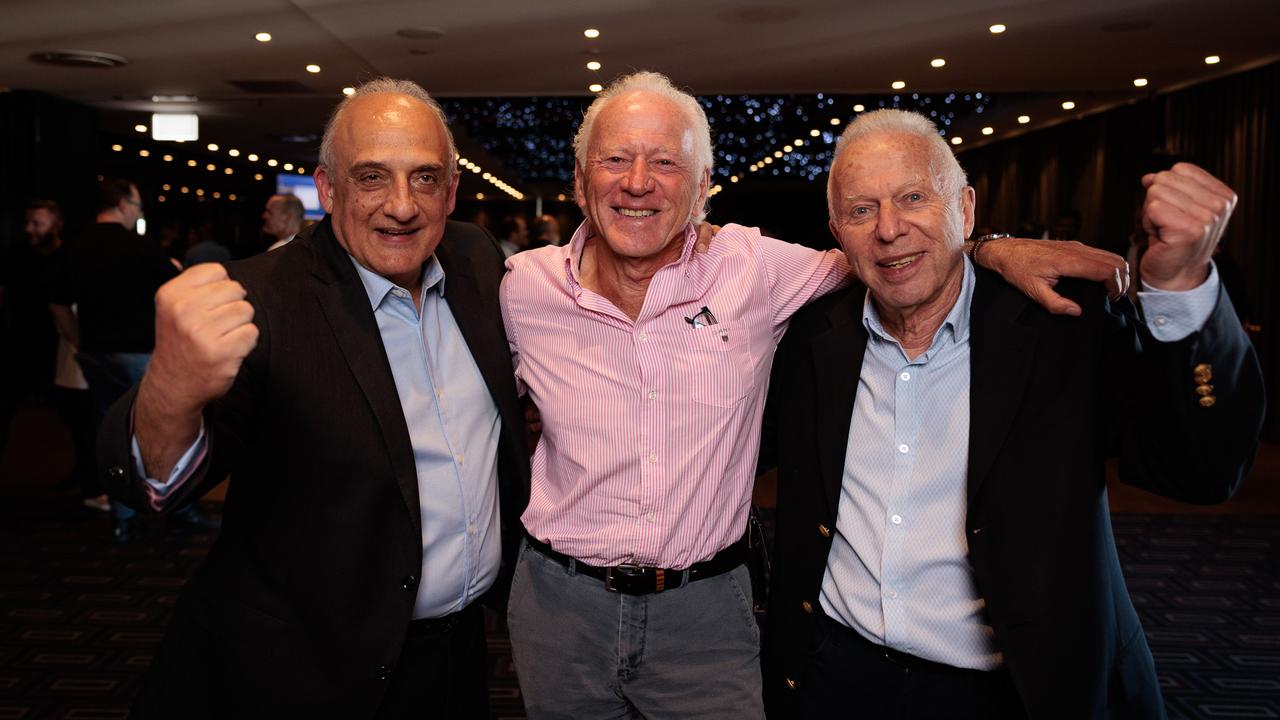Gerry Harvey rebuffs David Jones retail recession call, points to management instability
Gerry Harvey has dismissed David Jones’ retail recession diagnosis, pointing instead to management churn.

Gerry Harvey has dismissed suggestions that the retailing sector is in recession following the claims by South Africa’s Woolworths Holdings and argued problems with its David Jones operation might be more to do with its management.
The David Jones owner said its business in Australia was under “unprecedented economic pressures’’ declaring Australian retail was in recession.
But Mr Harvey, chairman of Gerry Harvey Holdings, told The Australian “I’ve been saying that retailing is flat but it is not in recession”.
He said the reason department stores such as David Jones and Myer were struggling might have to do with instability in management.
“Both have had a succession of changes which have seen a succession of CEOs,’’ he said “It is obviously having an impact’’.
Mr Harvey said there was no doubt that the internet was having an effect but he questioned whether the correct strategy was to increase online presence given internet retailers were struggling to make money.
“There is no evidence that any make money out of online operation,’’ he said.
The comments came after up-market retailer David Jones cast a pall over the nation’s retail sector on the eve of reporting season after its owner, South Africa’s Woolworths Holdings, declared Australian retail is in recession as it slashed $437 million in value from the chain.
The David Jones owner warned its business in Australia was under “unprecedented economic pressures”, with more than $1.1 billion in carrying value now torched in five years.
The decision to book a second round of impairments against David Jones and slash its carrying value from $2.1 billion when it was bought in 2014 to $965m now will send shockwaves through the investment community and raise fears that other publicly listed retail chains — such as department store rival Myer — might soon follow with their own dire warnings and impairments.
With reporting season about to kick off, the timing is awful for the $320bn retail sector, which is already struggling with the worst retail conditions since the Global Financial Crisis, which could trigger a fresh round of profit warnings from Australia’s biggest companies.
However the Australian Retail Association questioned the “recession” tag.
“It’s not as buoyant as it should be. It’s pretty tough out there but to call it a recession across the country, I’m a bit concerned about that,” ARA executive director Russel Zimmerman told 2GB radio.
Mr Zimmerman admitted that the industry was under some stress, but reports suggested there would be an upturn in sales in the second half of the year.
He said David Jones was “working on getting themselves in a position that’s right for the future”, and that Westfield and Myer were doing the same.
Woolworths Holdings has generally been reserved in its commentary on the Australian economy, but last night it provided a blunt and candid view of the state of the retail sector.
“This writedown reflects sustained and unprecedented economic pressures and structural changes in the Australian market. The retail sector in Australia is currently in recession and the Australian economy has slowed to its weakest level since the Global Financial Crisis in 2009,’’ a Woolworths Holdings spokesman said last night.
If retailers like David Jones expected a healthy bump in sales from the recent fall in interest rates and quick rebates from the federal government’s promised tax cuts they have failed to materialise. All eyes will now turn to key retailers such as Super Retail Group, Coles, Woolworths, Wesfarmers, Harvey Norman and Myer when they report their latest financial performance over the next six weeks and provide a greater analysis of the retail sector as it stumbles in the face of stagnant wage growth, the rising cost of living and tight household budgets.
Yesterday National Australia Bank released its latest Online Retail Sales Index, which showed a 1.6 per cent contraction in sales for June, driven by a 7 per cent slump in sales for homewares and appliances, with year-on-year sales barely positive at just 0.5 per cent growth.
Just last month Macquarie Wealth Management warned its clients in a detailed report that the retail sector remained weak and the outlook for household income growth challenging, with unemployment expected to remain above 5 per cent until 2021.
Unibail-Rodamco-Westfield, which owns the former Westfield international empire, told investors yesterday that the industry backdrop remained challenging and it expected that to remain the case for at least another two years, as it warned of tough times, especially in Britain.
Yesterday South Africa’s Woolworths Holdings said the tough retail and economic conditions would see it write down the value of its up-market department store David Jones by $437.4m. In a statement to its local stock exchange it said it was forecasting a loss for fiscal 2019 with an impairment charge of $437m recognised for the year. It said a strategic review of the David Jones store portfolio had identified onerous leases resulting in an additional provision of $22.4m in the period.
Under the watch of Woolworths Holdings chief executive Ian Moir, who led the purchase of David Jones five years ago, its value has been slashed, with the company booking an impairment of $712m against David Jones in 2018 as the poor retail conditions hit its performance.
The latest impairment means a total of more than $1.1 billion in value has been stripped from David Jones in two years.
Woolworths Holdings said the latest impairment was a result of the “economic headwinds” and the “accelerated structural changes affecting the Australian retail sector”, as well as the performance of the business, which fell short of expectations.
“Operationally, our strategic initiatives position David Jones for the retail environment of the future. Our digital and online offering is expanding rapidly. We remain focused on reducing costs and reducing store space across our footprint,’’ a Woolworths Holdings spokesman said.
David Jones’ sales performance and profitability have been dented by the downturn in retail conditions as well as the massive refurbishment of its flagship Elizabeth Street store in Sydney, which disrupted the business.
“The Elizabeth Street Flagship store refurbishment is on track, with key womenswear floors opening this month, and the exclusivity of our Country Road Group brands within David Jones will take effect from September adding to the extensive collection of new, exclusive brands signed to David Jones this year, in line with our focus on delivering an exclusive offering. These initiatives align us closely with the changing needs and preferences of our customers.”
In July Woolworths told the stock exchange in South Africa that David Jones had suffered a third consecutive year of shrinking like-for-like store sales. The company said like-for-like sales for the 52 weeks had slipped 0.1 per cent.
The up-market retailer also moved to trim its costs, and last month David Jones triggered 120 redundancies across its stores and headquarters.



